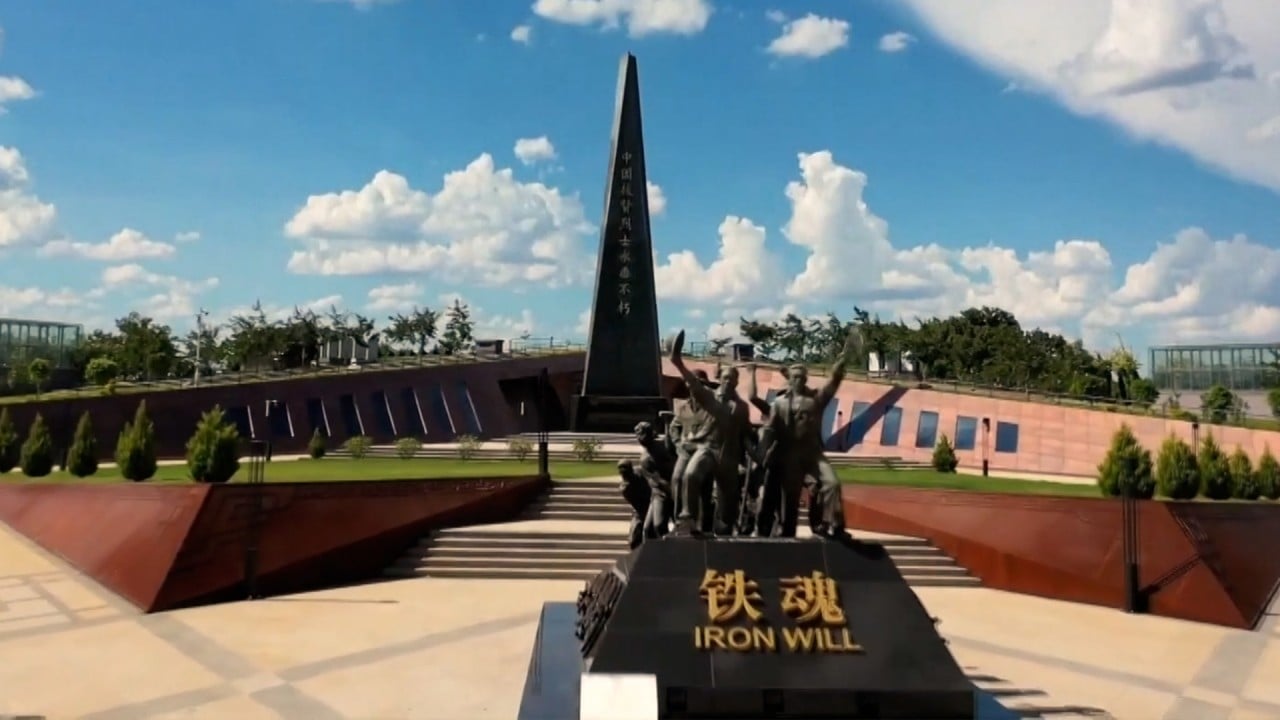
01:51
Zambia opens memorial for Chinese railway workers who died building Africa’s Tazara line

A consortium of Chinese companies will finance the upgrading of a 327km (203-mile) road linking the Zambian capital Lusaka to Ndola, in the country’s Copperbelt province, after years of false starts.
The Macro Ocean Investment Consortium, consisting of AVIC International Project Engineering, Zhenjiang Communications Construction Group and China Railway Seventh Group, won the US$650 million deal to build the dual carriageway road under the public-private partnership model.
The road links the capital to mineral-rich Copperbelt province and the border with the Democratic Republic of the Congo and carries almost all the road-bound mineral exports from the Copperbelt region along the southern corridor towards Tanzania, but due to heavy wear and tear, many segments have been in a dilapidated state for many years.
The agreement signed by the Chinese companies late last month gave them a 25-year concession period, split into three years for construction and 22 years operation and maintenance.
The PPP financing model is expected to lessen the debt burden on Zambia at a time when it has defaulted on foreign loans and is negotiating a debt restructuring deal with its lenders.
Zambian Finance and Planning Minister Situmbeko Musokotwane said Lusaka would not spend any money or provide any sovereign guarantee for the project.
He said the Zambian government would not spend any money on maintenance of the road during the concession period, but it would receive a share of the revenues generated and applicable taxes.
Under Zambian law, any PPP concession must give more than 20 per cent of the work to Zambian contractors.
Infrastructure, Housing and Urban Development Minister Charles Milupi told Zambian lawmakers on Wednesday that the PPP financing model would “guarantee infrastructure development and faster delivery using private capital given the challenging fiscal position of our country resulting from Covid-19, poor performance of the economy and huge public debt left by the previous regime”.
Macro Ocean Investment will recoup its investment through charging toll fees for 22 years.
Tim Zajontz, a research fellow at the Centre for International and Comparative Politics at Stellenbosch University in South Africa who has studied Chinese investments in Zambia’s road sector, said the previous Zambian government had signed a project finance agreement in 2017 with China Jiangxi Corporation, but its terms and US$1.25 billion cost had been politically controversial. He said the new Zambian government, elected in 2021, had cancelled the contract in 2022.
The PPP infrastructure financing model is gaining popularity among Chinese companies amid sovereign debt challenges in African countries. Zambia became the first African country to default on some of its dollar-denominated bonds during the Covid-19 pandemic when it failed to make a US$42.5 million bond payment in November 2020.
The country halted work on several Chinese-funded infrastructure projects, including the Lusaka-Ndola road, and cancelled undisbursed loans to help manage the debt problem.
Hong Zhang, a China public policy postdoctoral fellow at Harvard University’s Ash Centre for Democratic Governance and Innovation, said Chinese banks were no longer allowed to do sovereign loans in Zambia, even if they wanted to, so export credit for an engineering, procurement and construction contract was out of the question.
But even a PPP deal would be difficult as it would require partial loan financing, just not to the Zambian government, and Chinese banks and the China Export & Credit Insurance Corporation would still be very reluctant to lend money for a project in Zambia.
She also said toll roads were not easy to operate profitably in Africa.
“So far I think perhaps the only realised PPP toll road project by a Chinese company in Africa is CRBC’s Nairobi Expressway,” Zhang said.
Zhang said that in PPPs, companies recouped their investment either through government subsidies or by collecting tolls from users – or a combination of both – but neither was easy for a foreign company in a less-developed market environment.
She said that unlike power projects, road traffic and associated future cash flows were very difficult to forecast, which made them very “unbankable”.
“So I’d wait and see if this Chinese consortium can really develop a financing plan for this PPP project to be realised,” Zhang said.
Zajontz said the appeal of project finance PPPs for governments was that investors carried construction costs in advance, whereas their compensation accrued over a long period of time. But their success depended heavily on whether the project created the projected revenues and whether investors maintained infrastructure at agreed standards.
“Controversies between concessionaires and contracting authorities over such issues have in the past commonly resulted in litigation and the early termination of PPPs,” he said.
Other projects that have been built under the PPP model include the Lekki port in Lagos, Nigeria, and phase 1 of Port of Kribi in Cameroon, which was financed by Export-Import Bank of China. China Harbour Engineering won the construction contract for that project and later became a minor shareholder in the port operation joint venture.
Another example is the 27km Nairobi Expressway built and financed by state-owned China Road and Bridge Corporation for US$668 million. The firm will recoup its investment by charging toll fees for three decades before transferring ownership to the Kenyan government.
The shift to public-private partnerships by Chinese companies comes amid reduced bilateral lending for overseas projects as Chinese lenders take a more cautious approach in financing infrastructure projects.